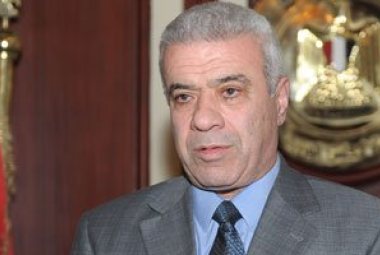ABB Group, a multinational specialised in electricity transmission and distribution, aims to increase exports this year to reach 25% of total production, up from 18% in 2017.
Nagy Gargiry, the corporation’s regional director in Egypt, North, and Central Africa, said that the company is keen to expand the export of its products made in Egypt and to boost local components in these projects to 40% and overall exports to 40% by 2020.
He explained that the volume of work carried out by the company in the past year was greater than the target plan by 20%, thanks to projects in the New Administrative Capital, water and sanitation projects, and small and medium enterprises (SMEs).
He added that the state is currently carrying out large projects such as the New Administrative Capital and the reclamation of 1.5m feddans, along with megaprojects in the energy sector such as distribution lines and electric transmission, which contributes to the creation of new investments and the creation of large employment opportunities and encourage foreign investment and domestic manufacturing at the same time.
He said that the company supplied dispensers and electric panels for many buildings in the New Administrative Capital and seeks to contract on other works during the current year, noting that the company’s smallest contract ranges between EGP 15m and EGP 20m.
The Swedish-Swiss ABB also cooperated with 50 companies in the field of solar energy to provide solutions and water pumping stations operating on solar energy, as part of the 1.5m feddans project.
He explained that the company seeks to compete for all tenders offered by government agencies for the supply of distributors and electrical panels, saying they will be completed in a period not exceeding 12 months, adding that the company works on projects through contractors.
ABB exports its products to 35 countries in Africa and Asia. The company is also working on entering new markets in the coming period to secure a greater inflow of dollars to finance imports in the coming period, in addition to increasing its business scale both in Egypt and abroad.
Moreover, ABB has recently opened a new branch in Ethiopia, as part of its plan to expand in African markets, especially in Algeria, Morocco, Cameroon, and Ivory Coast. Gargiry urged the Egyptian government to activate trade agreements with African countries so that the companies operating in the Egyptian market can expand their business and secure export routes.
He pointed out that dollar liquidity hindered the penetration of some African markets such as Nigeria, and is currently seeking to focus on expanding the Ghanaian market, through increased exports and partnerships with other entities.
He stressed that the energy sector is one of the best sectors in the Egyptian market and is currently witnessing the implementation of large-scale projects to generate power, in addition to projects for transport and distribution, noting that the sector succeeded in attracting new companies.
He pointed out that ABB is negotiating with 12 solar energy companies in Benban, Aswan to supply transformers and distributors for electricity. Companies’ officials have visited ABB and should sign the agreements soon.
Gargiry said that ABB bought a new building the Fifth Settlement area, which reflects its confidence in the Egyptian market. “Since 2011, we have been developing our factories and modernising production lines and expanding, with plans for further expansions in the coming period,” he stressed.
He stated that the main obstacles and challenges facing the company are the customs clearance procedures and the delay in clearing some commodities. “We are ready to cooperate with the Ministry of Finance to train the employees on dealing with products that could be delayed for technical or security reasons,” he added.
Gargiry explained that the rise in prices of raw materials impacted the value of products by 30%, though the company does not bear the effects, but rather, raises the final prices. He added that the company is working to compensate the losses it incurred following the floatation of the pound, as it contracted for several projects prior to it but supplied goods at higher prices without amending the original contracts.
Furthermore, he said that ABB is considering the establishment of a branch of the company in the Suez Canal Economic Zone (SCZone) as part of developing its projects, noting that ABB is only waiting for the necessary infrastructure in the area to be completed.
He added that the company plans to submit bids to participate in the tenders for the automated control of turbines and distribution panels of the Dabaa Nuclear Power Plant. “ABB can offer solutions to all electricity projects. We have submitted bids for the electric interconnection projects with Saudi Arabia, which is expected to be concluded in the second half of this year,” he said.




